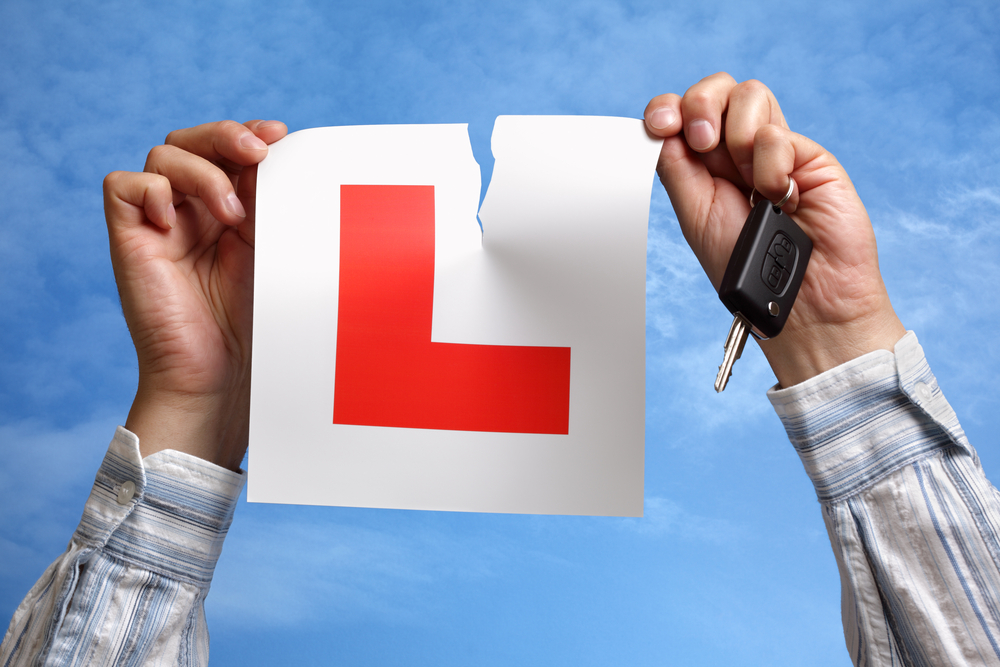
More than one million new motorists set to hit the roads this year
Britain could see 1.3 million new drivers on its roads this year due to a backlog of tests caused by the pandemic, predicts new research from Direct Line Motor Insurance.
The first 12 months of the pandemic (April 2020 to March 2021) saw the lowest number of driving tests taken since data was first published in 2007/08, with fewer than 500,000 tests conducted as the country was affected by the pandemic. This is more than a million fewer tests than in the previous 12 months and Direct Line is predicting the coming year could see a boom in new drivers, as test centres see an influx of learners from the past two years eager to take their tests.
With an average of 1.6 million tests being taken every year, combined with an estimated 1.2 million tests that had been delayed from 2020/21, suggests that as many as 2.8 million driving tests could be taken this year, which means an average of nearly 8,000 every day across the UK’s 380-plus test centres.
With some 750,000 learner drivers passing their tests every year, combined with an estimated 520,000 motorists who would have passed their tests in 2020/21 had they been able to, this could result in almost 1.3 million people passing their tests this coming year.
The data also shows that 2020/21 saw the highest pass rate in five years, standing at 49.8 per cent, meaning this year is likely to see 68 per cent more drivers take to the roads than before the pandemic. While significantly fewer people were able to take their test, the pandemic pass rate was 49.8 per cent, 3.4 per cent higher than the five-year average (46.4 per cent) and the highest rate since the data was first published, suggesting that those who did take their tests during the pandemic had benefitted from better preparation and were therefore more likely to pass.
2020/21 saw only 436,044 driving tests taken, which was 74 per cent lower than the five-year average. This suggests that an estimated 1.2 million learners who would ordinarily have taken their test over this time were not able to, and an estimated 550,000 fewer drivers passing their driving test as a result.
Despite the lower number of tests taken, around 3.6 million people have been learning to drive since the pandemic began, nearly three quarters (72 per cent) of whom were aged 18–342. The majority (91%) of those learning to drive during the pandemic said the effects of the pandemic had a positive impact on their learning experience. Of these, being able to practice on quieter roads (62 per cent) was the most positive factor, with more free time and being able to practice with a family member (both 58 per cent), also highly valued.
One of the main differences during the pandemic has been how drivers learn. The majority (87 per cent) of those who have a full UK licence learned with an instructor, half (49 per cent) of whom only used an instructor.
But parents have become driving instructors over the pandemic. A quarter (26 per cent) of Brits with full licences have helped their child to learn. This shift in the way people have been learning to drive is demonstrated by the fact that nearly three million parents (eight per cent) have insured their child on their car since the start of the pandemic, with a further four million (12 per cent) intending to do so once their child starts to drive.
Lorraine Price, head of motor insurance at Direct Line, commented, “It was a shame to see that learner drivers were so heavily affected by the pandemic as being able to drive is a pivotal part of a young person’s journey to independence. But it is inspiring to see that this has not deterred this generation of learners, who have had to be flexible and have adapted to this unique situation to achieve the highest pass rate in years. Overall, it’s extremely encouraging to see that the desire to get onto the road safely still remains despite the hurdle of the pandemic.”
